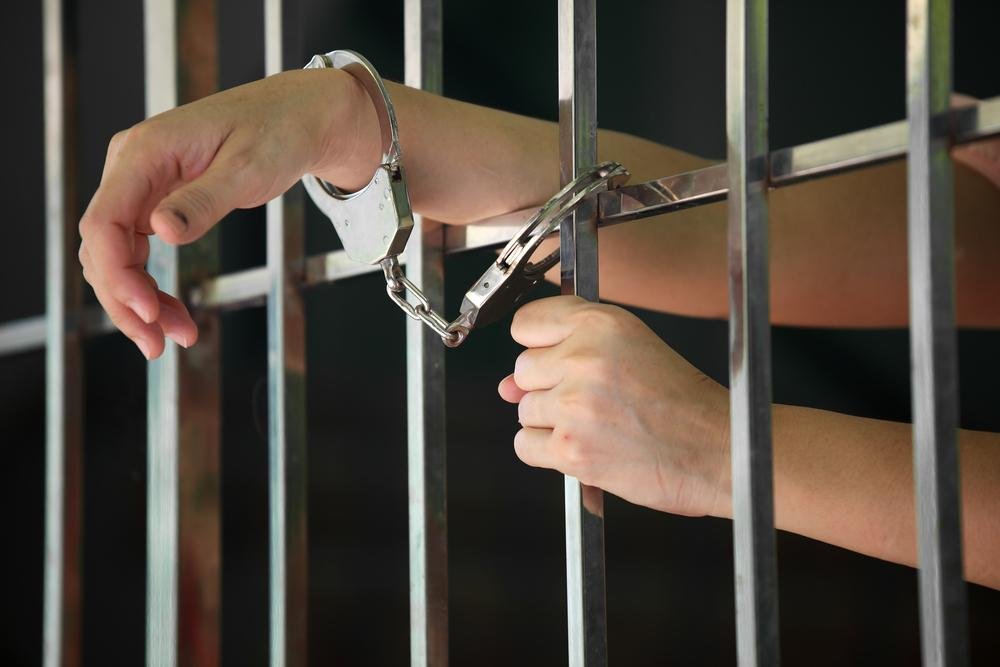We understand that facing corruption or bribery charges can be overwhelming and uncertain, but you don’t have to go through it alone.
At Tembusu Law, we provide reliable and affordable legal services to those dealing with corruption and bribery offences in Singapore.
Our experienced lawyers offer strategic legal guidance, ensuring you understand your rights and the legal process ahead. Let us help you navigate these serious charges with confidence and clarity.
Get Expert Help From Trusted Corruption And Bribery Lawyers In Singapore
Corruption and bribery offences are taken seriously in Singapore, with strict laws to uphold its reputation for integrity. Facing such charges can be overwhelming, with severe consequences at stake.
At Tembusu Law, our experienced lawyers provide clear legal guidance, helping you navigate the complexities of your case. We offer strategic advice to protect your rights and build a strong defence. Let us assist you every step of the way.
Expert Legal Guidance
Our lawyers have in-depth knowledge of Singapore’s anti-corruption laws, ensuring you receive accurate legal counsel. We help you navigate investigations, court proceedings, and defence strategies with confidence.
Tailored Defence Strategies
Every case is unique, and we craft legal strategies based on your specific circumstances. Whether you’re facing allegations of bribery, fraud, or misuse of authority, we work diligently to protect your interests.
Minimising Legal Consequences
We explore all legal avenues to mitigate penalties, negotiate settlements where applicable, and build a strong defence. Our goal is to safeguard your reputation, career, and future.
Understanding The Prevention Of Corruption Act (PCA)
The Prevention of Corruption Act (PCA) is Singapore’s main law for dealing with corruption. It covers both public and private sectors, making it illegal to give, receive, or request bribes in any form. The law applies to anyone involved in corrupt dealings, regardless of whether the transaction takes place inside or outside of Singapore.
Under the PCA, corruption is broadly defined as offering or accepting any benefit in exchange for influencing decisions or actions dishonestly. This can include cash, gifts, favours, entertainment, services, or business advantages. Both the giver and receiver of a bribe can face legal consequences.
Those found guilty under the PCA may face:
- Heavy Fines: Offenders can be fined up to $100,000 per charge.
- Imprisonment: A prison sentence of up to five years (or longer for government-related cases).
- Asset Confiscation: Any benefits obtained from corruption may be seized.
- Career and Reputation Damage: Convictions can impact future employment and business opportunities.
Under Section 37(1) of Singapore’s Prevention of Corruption Act (PCA), Singapore authorities can prosecute Singapore nationals for corruption offences committed outside the country. Even if the act of bribery took place overseas, offenders can still be charged under Singapore law.
Who Can Be Charged For Corruption In Singapore?
Under Singapore’s Prevention of Corruption Act (PCA), corruption laws apply to both individuals and businesses, covering offences in the public and private sectors. Anyone involved in offering, giving, receiving, or soliciting bribes can be charged, regardless of nationality or position.
Parties who can be charged include:
- Public Officials & Government Employees – Civil servants, law enforcement officers, and politicians who accept bribes or misuse their positions for personal gain.
- Private Sector Employees & Business Owners – Company directors, executives, and employees who engage in corrupt dealings, such as kickbacks, insider deals, or preferential treatment in exchange for benefits.
- Agents & Intermediaries – Middlemen or third parties who facilitate bribes between two parties can also be prosecuted.
- Foreign Nationals & Companies – Singapore’s extra-territorial jurisdiction (Section 37 PCA) allows authorities to charge Singaporeans and Singapore-registered companies for corruption committed overseas.
What To Do If You Are Under Investigation For Bribery?
Being under investigation for bribery can be overwhelming, but how you respond can impact the outcome of your case. If you are approached by the Corrupt Practices Investigation Bureau (CPIB) or any law enforcement agency, it is important to act carefully and protect your legal rights.
Here’s what you should do:
- Remain Calm and Cooperate: Avoid making impulsive statements. Listen carefully to the allegations and provide only necessary information.
- Do Not Admit Guilt Prematurely: Any statement you make can be used as evidence. If you are unsure, avoid discussing details until you seek legal advice.
- Engage a Lawyer Immediately: A lawyer can guide you on handling questioning, protect your rights, and advise on the best course of action.
- Do Not Destroy Evidence: Deleting emails, messages, or financial records can worsen your case and lead to additional charges.
- Understand the Charges Against You: Bribery investigations often involve financial transactions, business dealings, or personal interactions. Knowing the details of your case will help in preparing a strong defence.
- Avoid Contacting Witnesses: Any attempt to influence or discuss the case with others involved could be seen as obstruction of justice.
If you are under investigation for bribery, securing legal representation early can make a difference in your case. Our experienced bribery and corruption lawyers can guide you through the legal process and help protect your rights. Contact us today for immediate legal assistance.
Legal Standard For Charging An Individual With Corruption In Singapore
To charge a person with corruption in Singapore, prosecutors must prove certain legal elements under the PCA. A corruption charge is not just about money changing hands, it covers any act where a benefit is given, received, or requested with dishonest intent to influence a decision or action. The law applies to both public officials and private individuals, and charges can be filed even if the corrupt act was not successful.
- Gratification Given or Received – The accused must have offered, given, solicited, or received a benefit (money, gifts, favours).
- Corrupt Intent – There must be dishonest intent behind the exchange. The law does not require proof that the act was successful.
- Influence Over a Decision – The benefit must have been meant to unfairly influence an action or decision.
- Public Official Presumption – If a public officer receives a benefit related to their duties, it is presumed corrupt unless proven otherwise (Section 8 PCA).
- Burden of Proof – The prosecution must present strong evidence, such as financial records, communication exchanges, witness testimonies, or recorded transactions, to prove the case beyond a reasonable doubt. Even indirect evidence, such as unexplained wealth or sudden financial gains, can be used to support a charge.
Speak To Our Corruption And Bribery Lawyers For Clear Legal Guidance
Facing a corruption or bribery investigation can be overwhelming, but you don’t have to handle it alone. Our experienced lawyers understand the complexities of corruption laws in Singapore and can help you navigate your case with confidence.
Whether you are under investigation or facing charges, we will guide you through the legal process, explain your options, and work towards the best possible outcome. Reach out to us today for professional advice tailored to your situation.
Frequently Asked Questions About Engaging Corruption Lawyers in Singapore
What Should I Do If I Receive A Notice From The CPIB?
If you receive a notice from the Corrupt Practices Investigation Bureau (CPIB), do not panic. Read the notice carefully and follow any instructions given. Before responding or attending an interview, consult a lawyer to understand your rights and obligations.
Should I Cooperate With Investigators if I Believe I Did Nothing Wrong?
Yes, but with caution. Even if you are innocent, statements made without legal guidance can be taken out of context and used against you. A lawyer can help you provide accurate information while safeguarding your legal position.
What Is The Difference Between A Criminal Breach Of Trust (CBT) And A Corruption Case?
A Criminal Breach of Trust (CBT) involves misusing or misappropriating money, property, or assets entrusted to someone for their personal gain. It typically applies to employees, company directors, or individuals in positions of trust who dishonestly use funds or assets that do not belong to them.
A corruption case, on the other hand, involves giving, receiving, offering, or soliciting bribes to unfairly influence a decision or action. It is not about misusing entrusted funds but about using illegal incentives, such as money, gifts, or favours, to gain an advantage.
While both offences involve dishonesty, CBT relates to the abuse of entrusted assets, whereas corruption is about bribery and unfair influence. Each carries serious legal consequences, including fines and imprisonment under Singapore law. If you are facing an investigation for either offence, seeking legal advice can help you understand your options and possible defences
Should I Continue Running My Business If I Am Under Investigation?
Unless specific legal restrictions are imposed, you may continue operating your business. However, an ongoing investigation can affect contracts, partnerships, and overall business reputation. A criminal defence lawyer can help you manage legal risks and navigate any challenges that arise.
What Legal Services Does Tembusu Law Provide?
Tembusu Law offers a wide range of legal services tailored to different needs. Our team includes divorce lawyers in Singapore who provide legal support for both contested and uncontested divorces, ensuring a smooth and fair resolution.
We also have criminal defence lawyers dedicated to protecting your rights and building strong legal defences in various criminal matters. Additionally, we handle litigation and dispute resolution, assisting individuals and businesses in resolving legal conflicts effectively. Contact us today to learn more about how we can assist you.
Typical fee structure
- Basic - $4,500
- Intermediate - $6,500
- Advanced - $8,500
“I just want to send this note before the hearing tomorrow. Regardless of the outcome, I am very thankful to both of you for everything you’ve done for me. Especially to Mr. Wong, I’ll never forget how you took on my appeal case so quickly, at the juncture when I was mentally and emotionally distraught after my sentencing. The word “gratitude” is an understatement.”












